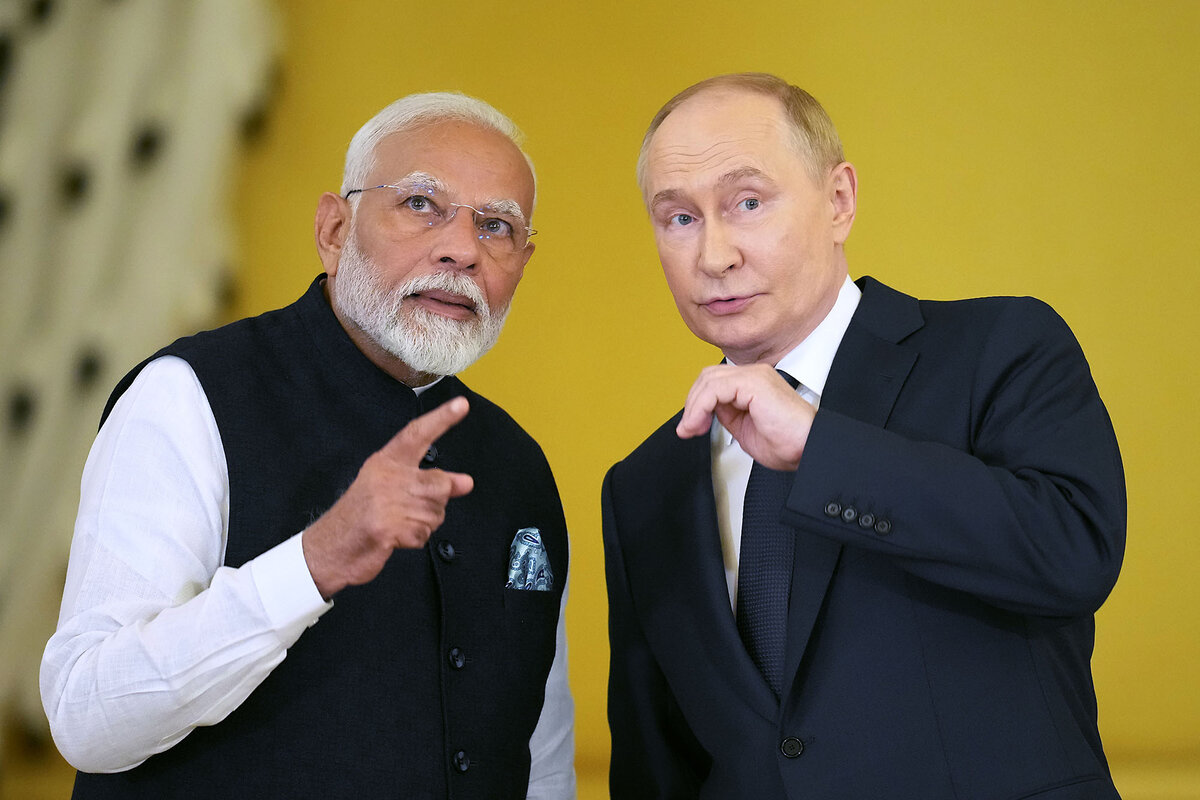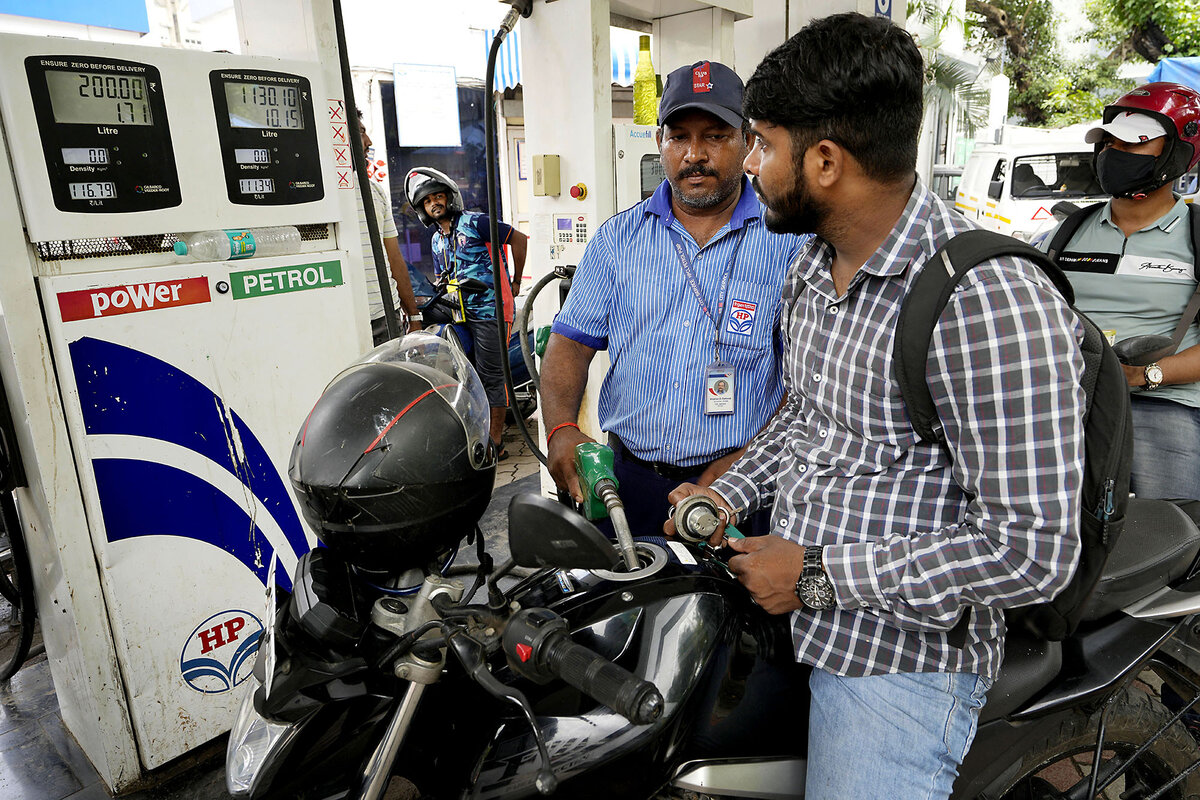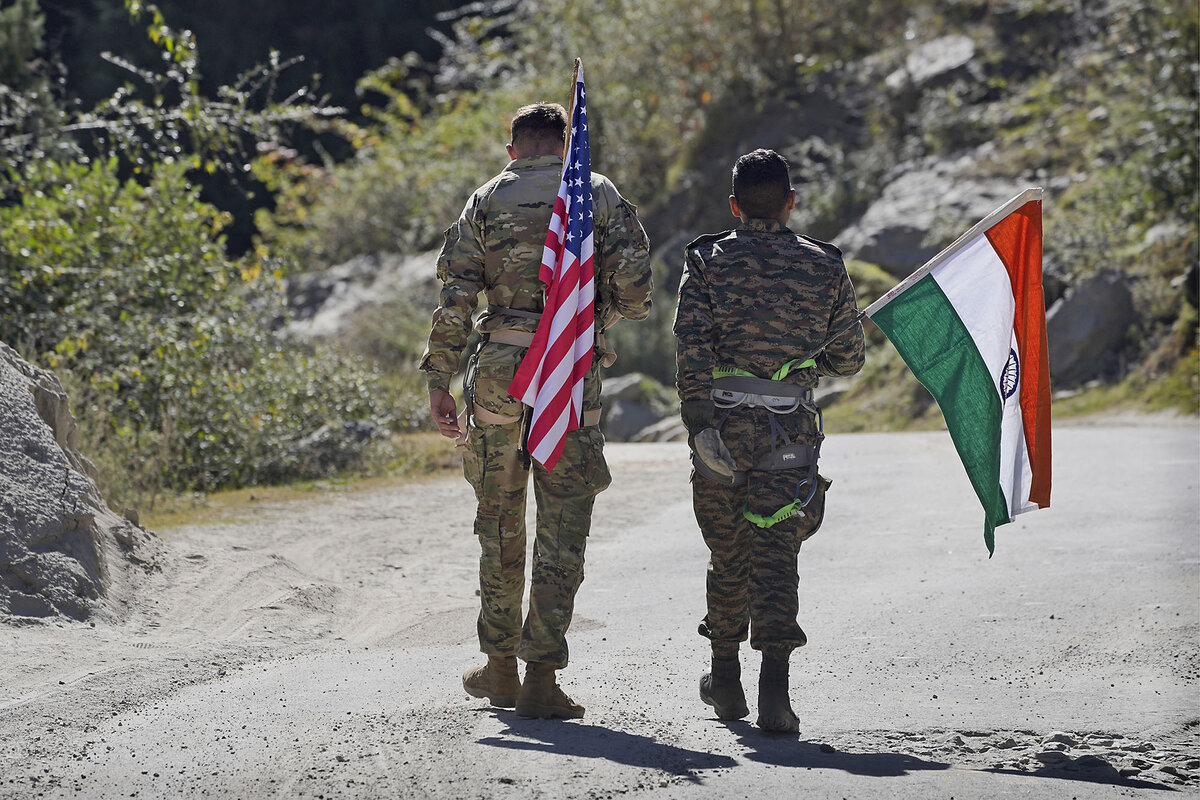On his first trip to Russia since the war in Ukraine began, Indian Prime Minister Narendra Modi embraced Russian President Vladimir Putin in one of his signature bear hugs.
The embrace outraged many. India celebrates being the world’s largest democracy, and is an increasingly important U.S. ally in Asia. But other than Mr. Modi’s veiled criticism of Russia’s attack on a children’s hospital in Kyiv that occurred before his arrival on Monday, the two leaders got on like old friends – which their nations are.
India has long relied on Russia for military equipment, and today, India’s warmth toward Russia helps ensure a supply of cheap coal, oil, and fertilizer for the country of 1.4 billion.
While India’s Western allies want Delhi to be tougher on Russia, experts say the United States accepts the relationship.
Pankaj Saran, former deputy national security adviser of India, says that over the past 70 years, the India-Russia relationship has powered through difficult times. The U.S. concern over India’s closeness with Russia has only been a challenge for the last two years.
“It is not as if there is anything secret about the relationship” between Delhi and Moscow, says Mr. Saran, who was India’s envoy to Russia from 2016 to 2018. “The Americans understand that the Indians are getting the discounted oil,” and that India isn’t Russia’s only potential ally in Asia.
“If you look at Russia and China, then India does not consider Russia in the same adversarial manner as it considers China,” which shares a contentious border with India, he says. “We have to maintain this friendship also to ensure that ... we do not push Russia further into Chinese arms.”
India’s national priorities
Russia and India established a strategic defense and trade partnership during the Cold War, a relationship that persisted after the fall of the Soviet Union and was solidified in 2000 when the two countries signed a new cooperation declaration.
Facing U.S. sanctions after invading Ukraine, Russia deepened trade ties with India, offering significant discounts on oil and making India a major export market. Foreign Secretary Vinay Mohan Kwatra said last week that bilateral trade has witnessed a sharp increase in the 2023-24 financial year, reaching approximately $65 billion primarily due to energy cooperation.
During the summit, Mr. Modi and Mr. Putin agreed to boost bilateral trade to $100 billion by 2030, announced the opening of two new Indian consulates in Russia, and discussed the need for peace talks. Russia also supported India’s United Nations Security Council bid and agreed to release Indians controversially recruited into the Russian army.
For Russia, the meeting demonstrated that Moscow still has friends. For India, it marked a bold step forward on foreign and domestic goals.
“Modi’s dreams of transforming India economically depend on the country’s ability to attract investment and technology from global partners, and to effectively secure the homeland,” says Milan Vaishnav, South Asia Program director at Carnegie Endowment for International Peace, a Washington-based think tank.
Even as Western allies pressure Delhi to distance itself from Moscow, India’s friendship with Russia still serves Mr. Modi’s ambitions to raise India’s profile as a global leader.
“Overall, [the trip] just underlines the fact that India will decide its relationships on the basis of its national interest, and it’s not going to be swayed by pressures from other powers,” says Nandan Unnikrishnan, head of Eurasian Studies at Observer Research Foundation, a think tank in Delhi.
Indeed, India’s foreign policy prioritizes independence. Its goal is to balance relations among three major powers – Russia, the U.S., and China – and to prevent any single hegemon from dominating Asia.
Grudging acceptance
Among those major powers, India’s relations with China are currently the most strained.
In this geopolitical balancing act, that puts India and the U.S. on the same page. Just as Delhi sees ties to Moscow as essential for limiting Beijing’s power, the U.S. is prioritizing ties with India to counterbalance China, explains Peter Rough, director of the Center on Europe and Eurasia at Hudson Institute, a Washington-based think tank.
“India’s relationship with Russia is secondary for Washington,” he says. “The goal of U.S. foreign policy should be to maximize alignment and overlap on priority issues, and not allow differences or disagreements on secondary matters to hamper relations.”
Michael Kugelman, South Asia Institute director at the Wilson Center, says that the West may not agree with India’s neutral position on Ukraine, but most Western allies recognize it as a consequence of India’s partnership with Russia.
“It’s a partnership that is problematic for the U.S., especially given all the Russian military equipment in an Indian defense system receiving ample U.S. defense technologies, but it’s a partnership the U.S. has grudgingly accepted,” he says.
Mr. Kugelman says there’s little the U.S. can do but play the long game, seeking ways to eventually provide India with the military and energy supplies it has relied on from Russia, a process that will take time.
Mr. Saran, the deputy security adviser, says Mr. Modi’s commitment to independent foreign policy could prove valuable to the West. “There is also an element here of trying to engage the Russians and Putin into some kind of a dialogue, in the hope that this dialogue can contribute towards” diplomacy with the West and peace in Ukraine, he says.
Eugene Rumer, former U.S. National Intelligence Council officer for Russia and Eurasia, agrees. He calls India an important U.S. partner, sharing many interests as seen in the Quadrilateral Security Dialogue, or the Quad, comprised of India, the U.S., Australia, and Japan. “The relationship between Russia and the U.S. could benefit from mediation, and it could be a good thing if India could play that part.”







